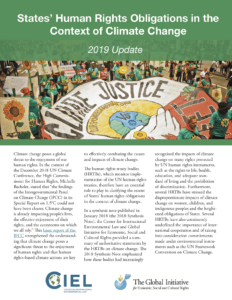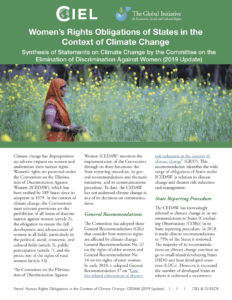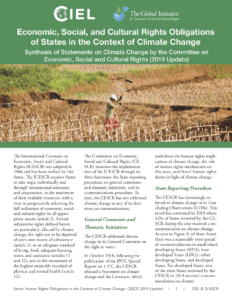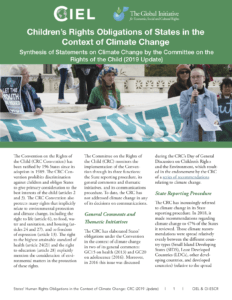
As governments and intergovernmental organizations have recognized, climate change has adverse impacts on a wide range of human rights. Consequently, existing human rights obligations defined under legally binding treaties must inform climate action. These obligations require that climate policies and measures effectively protect the rights of those most affected by climate impacts. They also require that the design of these policies and measures builds on the principles of non-discrimination and meaningful public participation.
In this context, the human rights treaty bodies (HRTBs) — established to monitor the implementation of the United Nations (UN) human rights treaties — have a critical role to play in further elaborating the obligations of States to respect, protect, and fulfill human rights in the context of climate change. During the past decade, these HRTBs have already provided many valuable recommendations to States underlining the relevance of international human rights obligations to a wide range of climate policies. This Synthesis Note provides an overview of States’ obligations under the different human rights instruments in the context of climate change, focusing on the authoritative guidance provided by the HRTBs in 2018.
This Note contains three main sections: The first section reviews the role of the HRTBs in identifying and monitoring States’ obligations in the context of climate change, the second appraises the authoritative guidance produced by these bodies in 2018 – including in comparison with relevant work accomplished by the HRTBs previously, and the third section provides a summary of their key statements addressing issues related to emissions reduction, adaptation to climate impacts, procedural rights, and international cooperation. In addition, three annexes provide a short synthesis of the contributions made in 2018 respectively by the Committee on the Elimination of Discrimination against Women (CEDAW), the Committee on Economic, Social and Cultural Rights (CESCR) and the Committee on the Rights of the Child (CRC).
Want to keep up-to-date? Sign up for updates. As UN Human Rights Treaty Bodies increasingly engage on issues related to the human rights implications of climate change and climate action, including by making recommendations to States regarding how to interpret their legal obligations in the context of climate change, we will provide periodic updates (ie. 4-6 updates annually) to keep you abreast of the latest relevant developments.
Focused Notes available below provide a more specific summary and analysis of the work of three treaty bodies with respect to States’ human rights obligations in the context of climate change in 2018.



